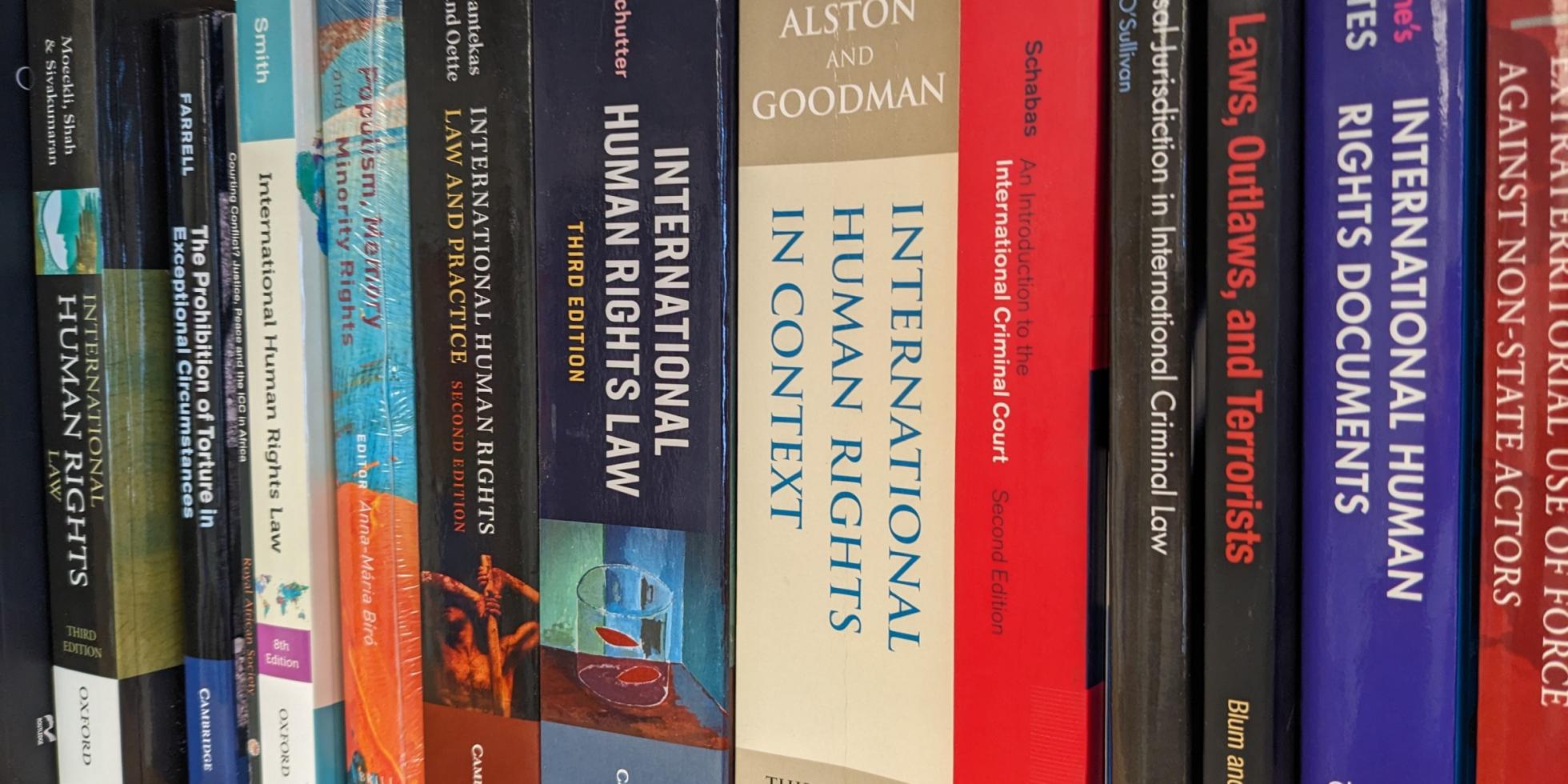The virtual human rights library brings together resources from multiple libraries and information services, both internal and external, to create an online hub dedicated to the study of human rights. This curation is unique in its interdisciplinary concerns and focuses on writings and research from social sciences, humanities, and law.
The virtual library is continually updated with the latest academic research in issue areas, as well as with relevant films, recorded conversations, and other forms of media.
Please Note:
The Virtual Library is usable by all visitors, but the hyperlinks to materials listed are for UChicago community members with a CNet ID and password.
Please direct feedback and suggestions to Kathleen Cavanaugh.
For technical assistance, email pozenhumanrights @ uchicago.edu.
Searchable Database
Click into the dropdowns to select the disciplines, keywords, and media type for your search, and then hit "Apply."
"State neutrality and Islamic headscarf laws in France and Germany."
Neutrality has been the classic answer of the liberal state to religious and cultural difference. A number of multicultural critics recently debunked it as “myth” and group power in disguise. Comparing Islamic headscarf laws in France and Germany, I argue...
"Strategic witnessing in an age of video activism"
Witnessing is infused in ethical and legal discourses that operate within the matrix of knowledge, responsibility, and action. Through an analysis of the non-governmental organization WITNESS, this article shows how this matrix has been at the heart of the development...
"Structural Sexism and Health in the United States: A New Perspective on Health Inequality and the Gender System."
In this article, I build a new line of health inequality research that parallels the emerging structural racism literature. I develop theory and measurement for the concept of structural sexism and examine its relationship to health outcomes. Consistent with contemporary...
"Talking human rights: How social movement activists are constructed and constrained by human rights discourse"
Human rights discourse is central for the work of international social movements. Viewing human rights as a context-dependent and socially constructed discourse, this article investigates how it is used by a specific social movement – Israel-critical diaspora Jewish activists –...
"Terror, Terrorism, Terrorists."
The terms terror, terrorism, and terrorist do not identify causally coherent and distinct social phenomena but strategies that recur across a wide variety of actors and political situations. Social scientists who reify the terms confuse themselves and render a disservice...
"Terrorism and state repression of human rights: A cross-national time-series analysis."
This study examines the major factors that predict states’ repressive policies, focusing on the relationship between oppositional terror attacks and state repression of core human rights. We rely on a theoretical framework that brings together actor-oriented explanations and socio-cultural approaches...
"The 'First' Case of Cholera in Haiti: Lessons for Global Health"
Cholera is an acute watery diarrheal disease caused by infection with Vibrio cholerae. The disease has a high fatality rate when untreated and outbreaks of cholera have been increasing globally in the past decade, most recently in Haiti. We present the...
"The Anarchy of Colored Girls Assembled in a Riotous Manner
This speculative history of the wayward is an effort to narrate the open rebellion and beautiful experiment produced by young black women in the emergent ghetto, a form of racial enclosure that succeeded the plantation. The narrative utilizes the reports...
"The barbarism of civilization: cultural genocide and the ‘stolen generations’."
Norbert Elias suggested that ‘civilization’ involves the transformation of human habitus so that violence of all sorts is gradually subjected to greater and more sophisticated forms of management and control, whereas ‘decivilization’ encompasses processes which produce an increase in violence...

